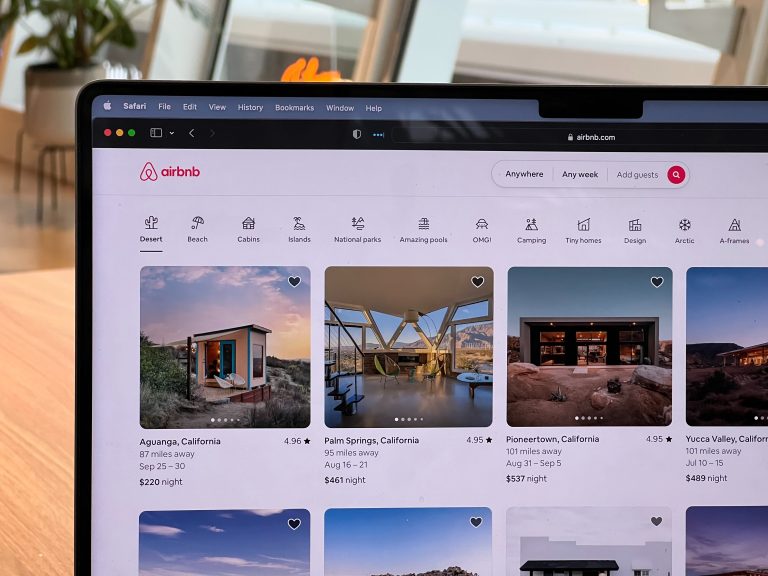Living Without Internet At Home In 2024!
Who said living without WiFi at home is a mission impossible?
It’s totally doable, and guess what? It might even jazz up your life!
Let’s get real for a sec. Do we really need the internet 24/7?
Is there life beyond TikTok and Insta stories?
Believe it or not, our ancestors rocked their existence without cat videos and funny memes, proving that life without the internet is totally doable!
Let’s face it, the internet isn’t going anywhere, but learning to live without it can be an empowering move.
Keep reading to discover how living without the internet at home in 2024 can help you reclaim your time and embrace the freedom of unplugging.

Living Without Internet At Home: Why Should You Do It?
Before we dive into the oh-so-tempting perks of living without internet at home, let’s face some mind-blowing stats:
The average person spends about 145 minutes on social media every day.
Yikes!
It’s more than 2 and half hours ever day. It’s time that you are never getting back and could spend on more important things.
According to BusinessInsider 95% of people use the phone for something just before going to bed and half of people check their phones immediately if they wake up during the night.

Benefits Of Living Without Internet At Home
1. You Can Save Money
How much are you spending on internet each month?
It can be 300$ – 1200$ a year depending on where you are.
Without a monthly internet bill, you’ll be saving money that can be used for other things.
Maybe it’s a nice dinner out, a weekend getaway, or simply adding to your savings.
Either way, it’s a win!
2. You Can Practice Mindfulness
Sayonara, Netflix binge!
Replace screen time with meditation, journaling, or a peaceful walk in nature.
Give your mind the space it craves to relax and rejuvenate.
Without the constant barrage of digital information, you’ll have more opportunities to engage in mindful activities.
These moments of mindfulness can help reduce stress, improve mental clarity, and increase your overall sense of well-being.
3. You Can Be More Productive
With fewer distractions, you’ll get more done.
Time to reignite those passions!
Use your newfound internet-free hours to pursue hobbies you’ve always dreamed of mastering.
Imagine this – you sit down to work on a project or study for an exam. You’re in the zone, making progress… and then you get a notification.
Without home internet, these distractions are significantly reduced, allowing you to focus and get more done.
And who knows? With all that extra productivity, you might just finish that project early!
4. You Become More Organized
Cat videos are cute, but let’s face it, they’re not exactly on your to-do list.
Without the constant distractions of the internet, you’ll find it easier to focus on your tasks and stay organized.
5. You Will Relax Better
Disconnecting means no more impatiently waiting for that next notification.
You’ll enjoy focused tasks, clearer thoughts, and less fragmented days.
6. Your Relationships Will Improve
Without the constant distractions of social media notifications and endless scrolling, you’ll find yourself more present in your interactions with others.
Whether it’s having a deep conversation with a friend, playing a board game with your family, or simply enjoying a quiet moment with your partner, these interactions can become more meaningful and fulfilling when you’re fully present.
7. You’ll Have A Chance To Rediscover Offline Hobbies
Remember that guitar gathering dust in the corner or the cookbook you bought but never used?
Whether it’s playing music, cooking, reading, or crafting, these activities can provide a sense of accomplishment and joy that scrolling through social media rarely can.

The Psychological Impact Of Living Without Home Internet
Let’s explore some of the potential mental health benefits of this digital detox.
1. Reduced Anxiety and Stress:
Ever felt your heart rate increase when you see a barrage of unread emails or social media notifications?
That’s your body’s stress response kicking in.
Without the constant influx of digital information and demands, you may find your stress and anxiety levels decreasing.
2. Improved Sleep:
Screen time, especially before bed, can interfere with your sleep.
The blue light emitted by screens can disrupt your body’s natural sleep-wake cycle, making it harder to fall asleep and reducing the quality of your sleep.
By cutting out home internet, you’re likely to spend less time on screens, especially in the evening, leading to better sleep.
3. Better Mental Health Overall:
Reduced stress and anxiety, improved sleep, more time for self-care and hobbies – all of these contribute to better mental health overall.
Plus, without the constant comparison to others’ lives on social media, you may find your self-esteem and mood improving.
4. Increased Self-Awareness And Self-Reflection:
Without the constant distractions of the internet, you’ll have more time for self-reflection.
This can lead to greater self-awareness, a better understanding of your goals and values, and more intentional living.
5. Freedom From Digital Validation:
In the age of social media, it’s easy to become reliant on likes and comments for validation.
Living without home internet provides an opportunity to break free from this cycle of digital validation, helping you to find validation from within and from your real-life relationships.

The Social Impact Of Living Without Internet At Home
1. Potential Challenges
You might initially feel out of the loop or disconnected from friends who communicate primarily online.
You might miss out on the latest memes, viral videos, or social media trends.
But remember, being a bit out of the loop on these things doesn’t mean you’re out of the loop where it matters – in your relationships with the people you care about.
2. More Face-to-Face Interactions
Without the option of socializing online, you’ll likely find yourself engaging in more face-to-face interactions.
Whether it’s inviting a friend over for coffee, joining a local club, or simply chatting with your neighbors, these in-person interactions can be more meaningful and satisfying than online communication.
3. Deeper Connections
When you interact with people in person, you’re able to pick up on non-verbal cues, like tone of voice and body language, that you miss out on in online communication.
This can lead to deeper, more empathetic connections with others.
4. More Time For Those Who Matter Most
Without the distraction of the internet, you’ll have more time to spend with your loved ones.
This could mean more family dinners, more heart-to-heart talks with your best friend, or more playtime with your kids.
5. Community Engagement
Without the internet to keep you occupied at home, you might find yourself getting more involved in your local community.
This could mean attending community events, volunteering, or simply getting to know your neighbors better.
While the internet can be a tool for socialization, it’s not the only -or even the best- way to connect with others.
The Environmental Impact Of Living Without Home Internet
1. Reduced Energy Consumption
Running the internet consumes a significant amount of energy.
This includes not only the energy used to power your devices at home, but also the energy used to run data centers and networks.
By living without home internet, you’re reducing your personal energy consumption.
2. Less Electronic Waste
Without the need for modems, routers, and other internet-related devices, you’ll be contributing less to electronic waste.
E-waste is a significant environmental problem, with tons of discarded electronics ending up in landfills each year.
3. Reduced Demand For Rare Earth Metals
Many electronic devices, including those used for internet access, contain rare earth metals.
The extraction of these metals has significant environmental impacts, including habitat destruction, water pollution, and greenhouse gas emissions.

The Challenges Of Living Without Home Internet And How To Overcome Them
Let’s take a balanced look at some of the potential difficulties of living without home internet, and provide some practical solutions.
1. Handling Emergencies
Without home internet, it might be more difficult to quickly access information in an emergency.
However, remember that for immediate emergencies, you can still call emergency services from a landline or cell phone.
For non-immediate emergencies, consider keeping a list of important phone numbers and resources handy.
2. Staying Informed
Without the internet, you might feel a bit out of the loop when it comes to news and current events.
But there are plenty of offline ways to stay informed such as traditional print and radio broadcasts.
3. Maintaining Social Connections
In the digital age much of our socializing happens online.
Without home internet you might initially feel disconnected from your social circle.
But remember, socializing happened long before the internet!
Consider scheduling regular phone calls or meet-ups with friends, joining local clubs or groups, or simply spending more time with your neighbors.
4. Working Or Studying:
Many public places, like libraries or cafes, offer free Wi-Fi, so you can still stay connected when needed.
Many tasks can be completed offline, or you can batch your internet-dependent tasks and complete them when you have access to public Wi-Fi, like at a library or café.
5. Fear Of Losing Connection With The Outside World:
It’s a valid concern. The internet keeps us connected with the world in a way nothing else can. But remember, the internet is not the only way to stay connected.

Practical Tips For Thriving Without Internet At Home
Living without internet at home doesn’t mean you’re signing up for a life of boredom. Quite the contrary! Here are some practical tips and activities to keep you engaged, entertained, and even more productive:
1. Rediscover the joy of reading
Now’s the perfect time to dive into those books gathering dust on your shelf. Not a fan of physical books? No problem! Download e-books when you have internet access and enjoy them offline at home.
2. Get Creative
Paint, write, knit, cook, or do whatever sparks your creativity. These activities not only help pass the time but also provide a great outlet for self-expression.
3. Exercise
Whether it’s yoga, a home workout, or dancing to your favorite tunes, physical activity is a great way to stay healthy and boost your mood.
4. Board Games and Puzzles
These aren’t just for kids! They’re a great way to spend time with family or roommates. Plus, they’re excellent for keeping your mind sharp.
5. Gardening
If you have a backyard or even a small balcony, gardening can be a therapeutic activity. Plus, you might even end up with some fresh herbs or vegetables!
6. Explore the Outdoors
Go for a walk, hike, or bike ride. The fresh air and change of scenery can do wonders for your mood and creativity.
7. Learn a New Skill
lways wanted to learn to play the guitar or speak another language? Now’s your chance! There are plenty of resources available that you can download and use offline.
8. Volunteer
Give back to your community by volunteering. It’s a great way to meet new people and make a difference.
9. Meditate
Practice mindfulness and reduce stress with meditation. Download guided meditations.
10. Journaling
Reflect on your day, write down your thoughts, dreams, and ideas. It’s a great way to understand yourself better.
How To Deal With FOMO
1. Embrace JOMO (Joy of Missing Out)
Yes, you read that right.
The antidote to FOMO is JOMO – the Joy of Missing Out.
It’s the blissful state of mind where you’re perfectly content with your offline activities, without worrying about what you might be missing online.
So, the next time FOMO rears its ugly head, counter it with a hearty dose of JOMO.
Remember, the internet’s endless stream of updates will still be there when you choose to log back in.
2. Reality Check
Most of the “breaking news” on social media isn’t as urgent as it seems.
Ask yourself “will it matter in a week, a month, or a year?”
Chances are, it won’t. So why let it disrupt your peace of mind now?

How To Actually Live Without Internet At Home
- Plan your time. Stay organized by setting aside specific blocks for tasks that require internet access. Plan your virtual meetings and online activities wisely to maximize your internet usage elsewhere.
- Get internet elsewhere. Seek out Wi-Fi hotspots in nearby cafes, libraries, or public spaces to fulfill your online needs when necessary.
- Download information in advance. Make use of downloads to have your favorite shows, music, and articles readily available when you’re offline.
- Do a test run first.Try living without internet for a day or two to get a feel for it before fully committing to the experience.
Remember, the goal isn’t to completely eliminate the internet from your life but to create a healthier balance between the digital and real worlds, leading to a more fulfilling and intentional way of living.





